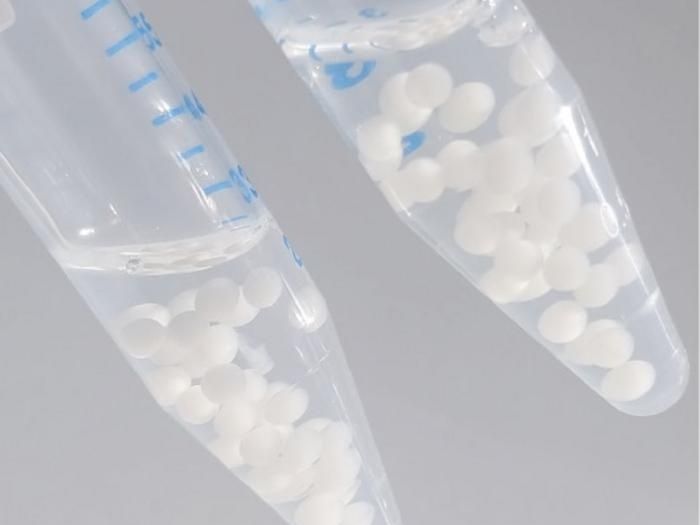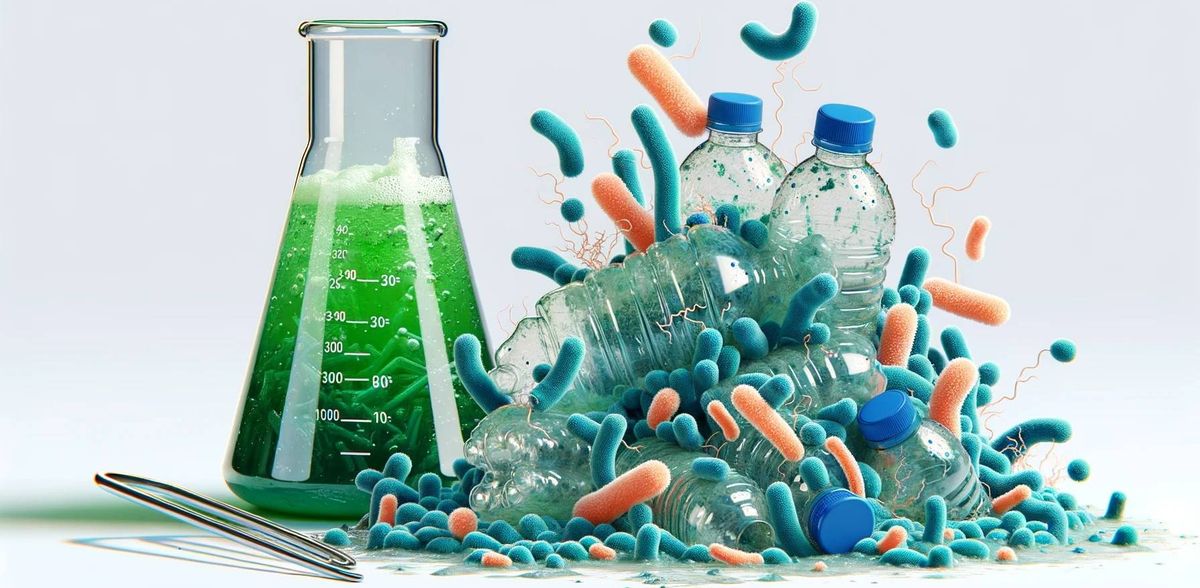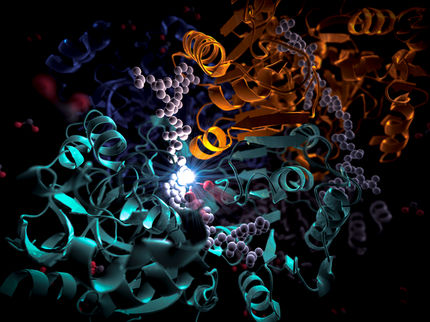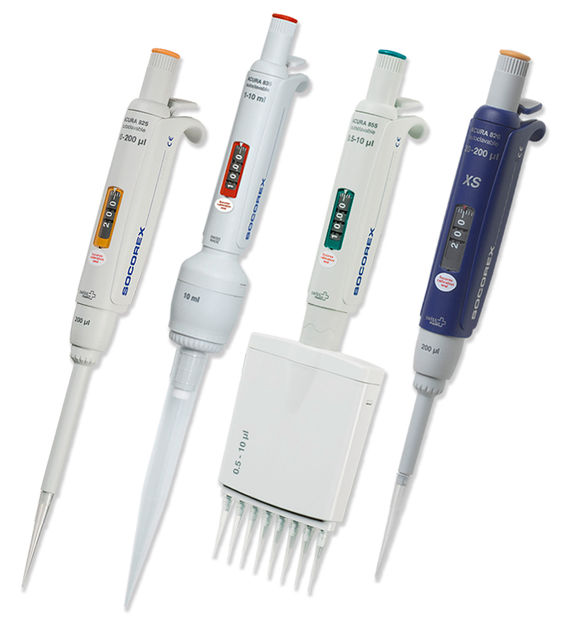Plastic-eating bacteria turn waste into useful starting materials for other products
Microbial Upcycling of Waste PET
Advertisement
Mountains of used plastic bottles get thrown away every day, but microbes could potentially tackle this problem. Now, researchers in ACS Central Science report that they’ve developed a plastic-eating E. coli that can efficiently turn polyethylene terephthalate (PET) waste into adipic acid, which is used to make nylon materials, drugs and fragrances.

These beads contain engineered E. coli that efficiently transform PET waste into a high-value compound.
Adapted from ACS Central Science 2023, DOI: 10.1021/acscentsci.3c00414
Previously, a team of researchers including Stephen Wallace engineered a strain of E. coli to transform the main component in old PET bottles, terephthalic acid, into something tastier and more valuable: the vanilla flavor compound vanillin. At the same time, other researchers engineered microbes to metabolize terephthalic acid into a variety of small molecules, including short acids. So, Wallace and a new team from the University of Edinburgh wanted to expand E. coli’s biosynthetic pathways to include the metabolism of terephthalic acid into adipic acid, a feedstock for many everyday products that’s typically generated from fossil fuels using energy-intensive processes.
The team developed a new E. coli strain that produced enzymes that could transform terephthalic acid into compounds such as muconic acid and adipic acid. Then, to transform the muconic acid into adipic acid, they used a second type of E. coli, which produced hydrogen gas, and a palladium catalyst. In experiments, the team found that attaching the engineered microbial cells to alginate hydrogel beads improved their efficiency, and up to 79% of the terephthalic acid was converted into adipic acid. Using real-world samples of terephthalic acid from a discarded bottle and a coating taken from waste packaging labels, the engineered E. coli system efficiently produced adipic acid. In the future, the researchers say they will look for pathways to biosynthesize additional higher-value products.
Original publication
Other news from the department science
Most read news
More news from our other portals
See the theme worlds for related content
Topic world Synthesis
Chemical synthesis is at the heart of modern chemistry and enables the targeted production of molecules with specific properties. By combining starting materials in defined reaction conditions, chemists can create a wide range of compounds, from simple molecules to complex active ingredients.

Topic world Synthesis
Chemical synthesis is at the heart of modern chemistry and enables the targeted production of molecules with specific properties. By combining starting materials in defined reaction conditions, chemists can create a wide range of compounds, from simple molecules to complex active ingredients.


































































